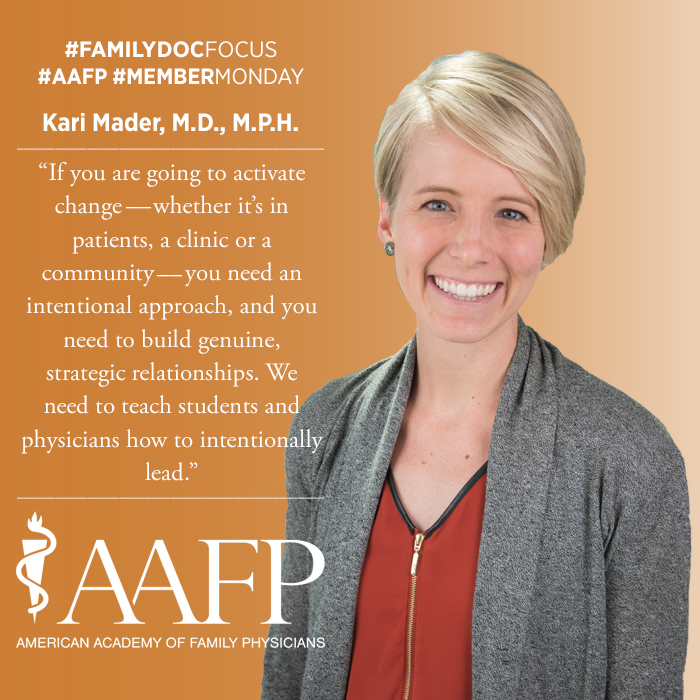Teaching Students to Be Leaders, Create Change
August 20, 2018, 10:30 am David Mitchell – The idea of a student-run free clinic wasn't new in Aurora, Colo. The concept had been tried -- and had failed -- before. So, when a community health assessment identified access to care as a problem in 2013, grassroots organizers knew they would need a different, more collaborative approach.

When it opened in 2015, the Dedicated to Aurora's Wellness and Needs (DAWN) Clinic had more than 200 volunteers and an array of community partners, including Primary Care Progress and the Fields Foundation.
"If you are going to activate change -- whether it's in patients, a clinic or a community -- you need an intentional approach, and you need to build genuine, strategic relationships," said Kari Mader, M.D., M.P.H., who helped found DAWN while training at the University of Colorado Family Medicine Residency and now serves as the clinic's associate medical director and faculty advisor. "We need to teach students and physicians how to intentionally lead."
The clinic started by offering primary care and physical therapy one night a week. It has since expanded to offer subspecialty care one night a week and has recently added tuberculosis and HIV screening, as well as women's health services through new partnerships with the university's Anschutz Medical Campus and the local public health department.
University of Colorado students already had an interprofessional curriculum on their medical campus before the clinic opened, but Mader said they wanted more real-world opportunities. Each week, the clinic draws dozens of student volunteers who are studying to be dentists, nurses, nurse practitioners, physicians, physician assistants, pharmacists and physical therapists.
"There was an outcry from students," said Mader, an assistant professor at the University of Colorado, co-director of undergraduate medical education in the Department of Family Medicine and adjunct faculty in the Colorado School of Public Health. "They said, 'We want to do work in the community, but we haven't been given a venue to do that.' The clinic is a hub for students to see the community's needs and do something about it. It's exciting. Students can learn how to partner with a community and create change."
Mader is taking her local success story and speaking about it nationally. As a consultant for Primary Care Progress, she teaches that organization's Relational Leadership model at meetings and conferences. The model uses concepts such as strategic storytelling and fostering teamwork to accelerate change.
Mader, who was a featured speaker at the recent AAFP National Conference of Family Medicine Residents and Medical Students, also met with family medicine interest group (FMIG) leaders in her role as a project leader in the Primary Care Leadership Collaborative -- an effort of the AAFP, Family Medicine for America's Health and Primary Care Progress.
The collaborative teaches the Relational Leadership model to empower FMIGs to move beyond the passive learning opportunities they're known for and take action with creative local solutions to issues related to workforce and health equity. Eleven medical schools are participating in the collaborative and making strides toward creating new pipeline programs for students who are underrepresented in medicine to be admitted to their schools, to increase medical student exposure and experience in primary care by changing curricula, and to address social determinants of health in their communities.
"FMIGs have a lot of potential because they are socially minded students who want to create change," she said.